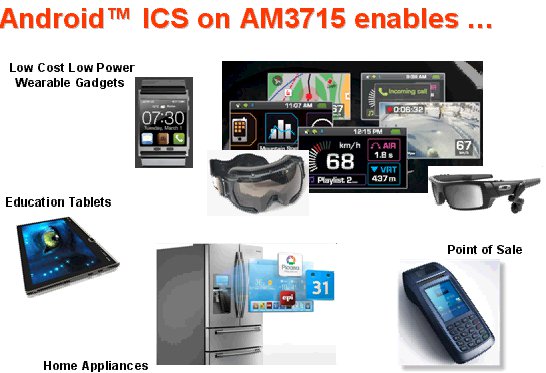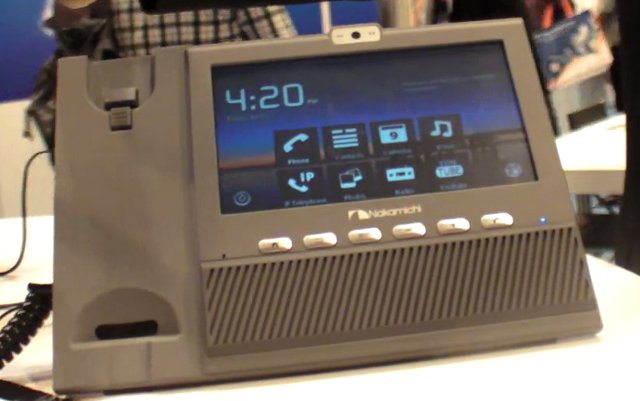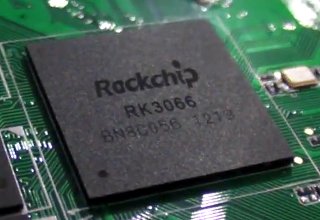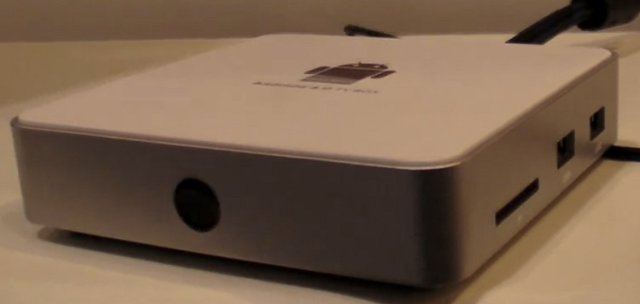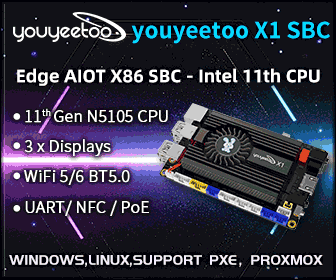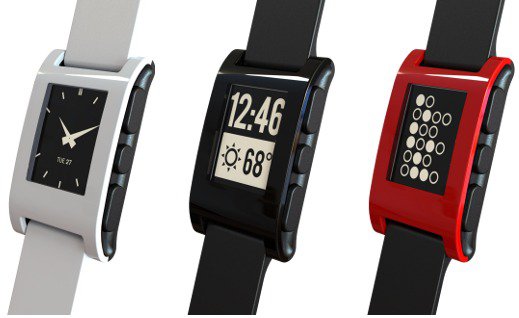Sunlike, a Shenzhen-based manufacturer, showcased their UMPC-1021 Android 4.0 netbook at the China sourcing fair last week. This netbook is powered by an AllWinner A10 (ARM Cortex A8) processor with 1GB RAM and 4GB flash and features a 10.2″ LCD display (but not a touchscreen), a 1.3MP front camera and a 2100mAh battery. Here are the specifications of Sunlike UMPC-1021 Android netbook. CPU AllWinner A10 @ 1.2 GHz Operation system Android 4.0 ICS or WinCE Memory 1G RAM Storage Device 2/4/8G NAND Flash LCD 10.2″ PANEL 16:9 wide screen. 1024×600 Resolution LAN 10/100M Ethernet WIFI 802.11b/g USB Port 3x USB 2.0 Host External Storage SD Card Slot Build-in camera 1.3 MPixel Audio Build-in stereo speaker Microphone Dimensions 280 x 189 x 25 mm Battery 7.4V 2100 mAh – 3 to 5 hours usage The company also explains that this netbook can be used for 5 hours with the “default” 2,100 mAh battery, but they can extend that to 10 hours with a 4,000 mAh battery. Watch the video below to see […]
Texas Instruments Releases Android 4.0.3 DevKit for Beagleboard-XM and Beaglebone
After collaborating with arowboat, android-porting and Linaro communities, Texas Instruments has released Android 4.0.3 development kits for Sitara microprocessors which support Beagleboard-XM (Sitara DM3730) and Beaglebone (Sitara AM335x) low cost development boards, as well as other Sitara-based evaluation modules and development boards. Android 4.0.3 Devkit for Beaglebone If you have a Beaglebone (and an LCD or DVI-D cape), you can use TI Android ICS 4.0.3 DevKit v3.0.1, a release providing an Android ICS 4.0.3 distribution for TI’s Sitara AM335x ARM Cortex A8 Processors. This DevKit provides Android sources with pre-integrated SGX (3D graphics accelerator) drivers, TI hardware abstraction for Audio, WLAN & Bluetooth for TI WL1271 chipset, USB mass storage, etc, as well as development and debugging tools such as a toolchain, TI CCSv5, ADT plugins and more, which are provided to build custom Android solutions for the embedded market more easily. The pre-built images includes Android default apps, multimedia […]
Nakamichi Android VoIP Phone at Hong Kong Electronics Fair 2012
M3 Electronics (HK) showcased an Android VoIP phone they designed for Nakamichi at HKTDC Electronics Fair on April 13-16, 2012. The current model based on Rockchip RK2818 (Cortex A8) features a 7″ resistive touchscreen and a camera for video conferencing and runs a customized version of Android. This VoIP phone is especially targeted at home use as it offers multimedia functions such as Internet Radio, music playback and YouTube, as well as Calendar and Contact applications. You can make calls via PSTN or Internet (e.g. Skype or some SIP clients). Nakamichi VoIP phone currently sells in Europe and the US for 259 USD, and should be sold in China via China Telecom this year. A new model of the phone powered by Freescale i.MX535 is currently designed with a capacitive touchscreen and a 5 MPixel camera, USB host port for external storage and HDMI output. This VoIP phone can also […]
Second Release of Debian 6 for Raspberry Pi
As Raspberry Pi boards have started to ship this week, the Raspberry Pi foundation has also posted a new Debian 6.0 “squeeze” release to the downloads section of raspberrypi.org this week-end. This release contains several performance enhancements, including enabling the 128K system L2 cache for the first time, and first-cut ALSA drivers. Enabling the L2 cache will boost the ARM CPU performance, however, it may decrease the GPU performance. So this setup is ideal for headless server, but for other applications, for example a media player decoding 1080p30 videos, the performance might actually go down. This is still customizable, as the L2 cache can be enabled / disabled with enable_l2cache parameter in the config.txt file stored on the SD card. The ALSA drivers are here for audio support, so audio output might not have been supported in the first release (TBC), except if they used another type of audio drivers […]
Rockchip Unveils RK3066 Dual Core Cortex A9 Processor
Rockchip announced the RK3066 processor featuring a dual core Cortex A9 with a quad-core Mali-400 GPU and the company is currently showcasing tablets, e-Readers and set-top boxes powered by RK3066 at Hong Kong Electronics Fair on 13-16 April, 2012. Information is sparse, but I managed to find more information on Engadget China website which shows the key features of RK3066: Dual Core A9 + Quad Core GPU 2 banks, 8/16 bit Nor flash / SRAM interface 8 banks, 8/16 bit async NAND flash, LBA NAND flash and 8-bit sync ONFI NAND flash, all up to 60-bit hardware ECC 2 GB space for 2 ranks, 16-bit / 32-bit DDR3-800, LPDDR2-800 and LVDDR3-800 3 channels SD/MMC interface to support MMC 4.1 and SD3.0 2 channels TFT LCD interface with 5 layers and 3D display with resolution up to 1920×1080 HDMI 1.4 to support 1080p@30 3D video 2 channels 8-bit CCiR656 interface and […]
Diyomate A6 TV BOX: 45 USD Android 4.0 Networked Media Player Based on Telechips TCC8920
Diyomate A6 TV BOX is a networked media player running Android 4.0 (ICS) and powered by Cortex A5 Telechips TCC8620 processor, and the company – Diyomate Electronic Technology – is showcasing their new device at the Hong Kong Electronics Fair on April 13 – 16, 2012. Here are the specifications of this set-top box: CPU – ARM Cortex A5 Telechips TCC8925 TCC8920 with Mali 400 GPU System Memory – 1 GB DDR3 Video Codecs – H.264, VC1, ASP, DivX 3.x for 720p, 1080i and 1080p resolutions. Video output – Composite and HDMI 1.4 Flash – Flash 11.1 supported Connectivity – 10/100 Mbps Ethernet + built-in Wifi 802.11 b/g/n You can watch the video below to learn more about Diyomate A6 TV BOX. Diyomate A6 TV BOX set-top box should be available in May and cost 45 USD (MOQ: 1000). So I suppose the retail price should be around or below 90 […]
Pebble: Bluetooth Watch for Your iPhone or Android Smartphone
Pebble, an E-Paper Watch for iPhone and Android smartphones, is a new project on KickStarter with over 11,000 backers and over 1.5 millions US dollars raised for production. The Pebble Watch connects to iPhone and Android smartphones using Bluetooth, and can alert you with a silent vibration to incoming calls, emails and messages. The Pebble watch has the following specifications: ARM Cortex-M3 MCU 144 x 168 pixel display black and white e-paper Bluetooth 2.1+ EDR 4 buttons Vibrating motor 3 axis accelerometer with gesture detection The developers also claim a 7-day use on a single battery charge. Pebble can be customized with Apps with will take advantage of the BT connection with smartphones and allow pretty nice applications such as: Bike Computer – Cyclists to use Pebble to display speed, distance and pace data by accessing the smartphone’s GPS . Running Watch – Joggers and runners can also use the […]
Qt 5 for Raspberry Pi (QtonPi) 0.1 Release
Nokia Qt Labs has announced the very first release of Qt5 for Raspberry: QtonPi 0.1. QtonPi 0.1 includes a pre-alpha release of Qt 5, but Qt 5 alpha will be part of the next release. So bear in mind that it’s likely to be buggy and some features are missing. This release is includes: Base Layer Fedora RPM Packages plus some additional Raspberry Pi specific packages Linaro GCC 4.5.4 toolchain QtonPi image creator and sysroot tools Middleware Documentation on how to get toolchain + sysroot + Qt Creator working to Develop Apps Qt 5 running on full-screen EGFS mode The release can be downloaded via: BitTorrent – qtonpi-0.01.tar.bz2.torrent HTTP Download – qtonpi-0.01.tar.bz2 Alternatively if you are already running the Debian 6 image in the emulator or Raspberry Pi board, you can install the latest snapshot (e.g. nightly build) by adding deb http://archive.qmh-project.org/rpi/debian/ unstable main to /etc/apt/sources.list and run the following […]



